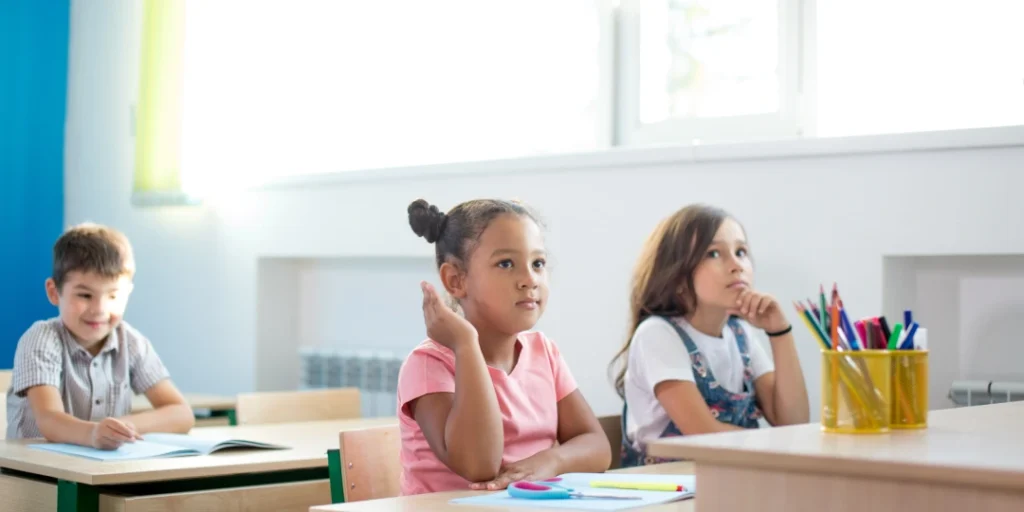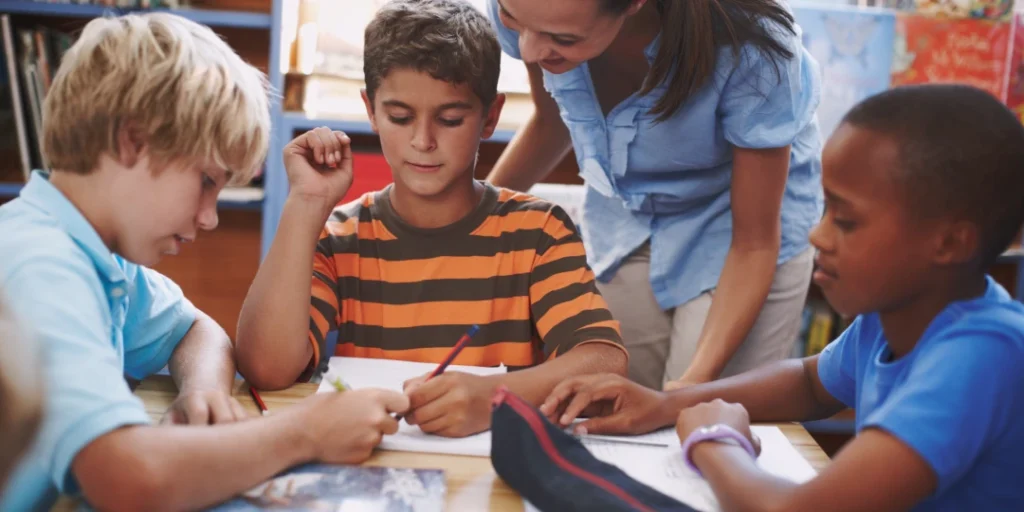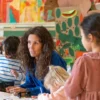![Unlocking Brilliance: 5 Powerful Ways Mt. Juliet Day School Ignites Young Minds Introduction: The Transformational Power of Early Education The earliest years of life are profoundly influential, laying the groundwork for cognitive patterns, emotional resilience, and social engagement. At Mt. Juliet Day […]](https://dayschools.org/mtjuliet/wp-content/uploads/sites/6/2025/05/Day-School-4.webp)
Table of Contents
Introduction: The Transformational Power of Early Education
The earliest years of life are profoundly influential, laying the groundwork for cognitive patterns, emotional resilience, and social engagement. At Mt. Juliet Day School, early childhood education is viewed not as preparation for something greater, but as a deeply significant period in its own right. The school operates with the understanding that this phase is where foundations are set—not only for future academics, but for character, identity, and lifelong learning habits. Each moment, from morning arrival to afternoon exploration, is infused with intentionality and care.
In this environment, students are not passive recipients of knowledge but active participants in a journey of discovery. Classrooms are designed to encourage inquiry, exploration, and wonder. Whether they are experimenting with water flow, participating in storytelling circles, or negotiating social roles in collaborative play, children are learning through experience. This hands-on, hearts-engaged model ensures that growth happens across multiple dimensions—academic, emotional, and interpersonal. Mt. Juliet Day School serves not just to inform, but to transform.
This transformational ethos is crucial in a fast-evolving world that demands more than memorization or task completion. Today’s children must become tomorrow’s agile thinkers, empathetic leaders, and resilient problem-solvers. Mt. Juliet Day School meets this challenge by cultivating curiosity and instilling a love of learning from the very beginning. It is not merely preparing students to meet academic milestones—it is awakening the intrinsic brilliance within each child, enabling them to thrive in school and far beyond it.
Personalized Learning Pathways for Individual Growth
At Mt. Juliet Day School, personalization is more than a buzzword—it is a philosophical commitment to honoring the uniqueness of every child. Each student arrives with a distinct blend of learning styles, interests, developmental timelines, and personal experiences. Recognizing this, the school avoids one-size-fits-all instruction and instead adopts an individualized approach that ensures all students are both supported and challenged appropriately. Learning becomes a dynamic process that responds to the child, rather than forcing the child to conform to a static curriculum.
To implement this effectively, teachers at Mt. Juliet engage in ongoing formative assessment. They observe how children interact with materials, listen to their questions, and track their progress through thoughtfully curated portfolios. These portfolios reflect more than academic performance—they tell a story of growth across domains. Educators use this information to refine instruction in real time, crafting activities that align with developmental needs and stretch each learner just beyond their current level of mastery. In this model, challenge and encouragement exist in perfect balance.
Importantly, this personalized approach is not limited to cognitive learning. It extends to the emotional and social realms as well. Teachers intentionally build relationships with students, tuning into their emotional cues, strengths, and sensitivities. This relational depth creates a foundation of trust, which is essential for authentic learning. When children feel known and respected, they are more willing to take risks, explore new ideas, and persist through challenges. At Mt. Juliet Day School, the commitment to personalization ensures that every child is not only learning—but thriving as their full, individual selves.

The Role of Constructive Play in Cognitive Development
Constructive play at Mt. Juliet Day School is not a break from learning—it is learning in its most natural, integrated form. Children are inherently curious, and the school channels this curiosity through play-based frameworks that stimulate higher-order thinking. Constructive play allows children to physically manipulate their environment, which in turn supports brain development, abstract reasoning, and the acquisition of foundational academic concepts. In these playful contexts, learning is both active and deeply meaningful.
Each classroom is intentionally designed to function as a landscape of discovery. Activity zones are curated with purpose, offering children access to manipulatives, building tools, imaginative props, and sensory-rich materials. Whether assembling structures with wooden blocks or creating blueprints for their imaginary city, children engage in decision-making, spatial reasoning, sequencing, and cause-and-effect exploration. These cognitive experiences are often interdisciplinary—math, science, literacy, and engineering interlace seamlessly in play that feels, to the child, like fun rather than a task.
Educators act as collaborative partners in this process, observing closely and intervening at moments that invite deeper thinking. Instead of directing outcomes, they pose reflective questions like, “What might happen if…?” or “How could we change this to make it stronger?” This inquiry-driven interaction guides students from simple trial-and-error to intentional experimentation and reasoning. By fostering this kind of metacognitive engagement through play, Mt. Juliet Day School develops children who are not only intellectually agile, but also confident in their ability to explore, invent, and solve.
Emotional Intelligence as a Foundational Skillset
At Mt. Juliet Day School, emotional intelligence is treated with the gravity it deserves—as a pillar of lifelong success. The school recognizes that the ability to understand and manage one’s emotions, as well as to navigate social situations with empathy and grace, is just as critical as academic prowess. Emotional literacy is not relegated to isolated lessons; it permeates the entire culture of the school, woven into daily routines and classroom interactions with intention and consistency.
From the earliest age, students are taught to identify their feelings and the feelings of others. Through tools such as “feelings charts,” social stories, and emotion-themed read-alouds, children acquire the vocabulary and self-awareness necessary to express themselves constructively. Morning meetings create a safe ritual for emotional check-ins, giving students the opportunity to reflect, share, and build community. Conflicts are addressed not with punishment but with dialogue—restorative practices that allow students to understand the impact of their actions and practice empathy-driven resolution.
The benefits of this emotional grounding are manifold. Children who are emotionally literate tend to be better communicators, more collaborative, and more resilient in the face of challenges. They are less likely to act out when overwhelmed and more likely to seek help when needed. This emotional maturity enhances every aspect of their academic and social journey. Mt. Juliet Day School’s commitment to SEL ensures that students don’t just leave with strong cognitive skills, but also with the emotional tools to thrive in complex, dynamic environments—whether in school or in life.
Engaging Nature as a Living Classroom
Mt. Juliet Day School transforms the outdoors into an extension of the classroom, believing that nature is one of the richest learning environments available to young children. The natural world is inherently interdisciplinary, engaging children’s senses while connecting them with real-world phenomena. In this setting, learning becomes experiential, tangible, and unfiltered—rooted in direct observation, hands-on experimentation, and deep sensory engagement.
The school’s outdoor learning areas are designed to encourage exploration, cooperation, and environmental stewardship. Children care for garden beds, tracking the growth of plants from seed to harvest, integrating biology, measurement, and responsibility. In the mud kitchen, students mix, pour, and create, honing fine motor skills while engaging in open-ended, imaginative play. Seasonal changes prompt rich discussions about weather patterns, habitats, and ecosystems, turning daily experiences into spontaneous lessons in science and geography.
Nature also serves as a profound support for mental and emotional well-being. Outdoor play reduces anxiety, increases focus, and allows children to regulate their energy levels through movement and fresh air. It provides a calming, restorative balance to indoor activity while encouraging independence and risk-taking in a safe, stimulating environment.
At Mt. Juliet Day School, the outdoors is not a backdrop—it is a living, breathing classroom that supports whole-child development. In this space, children not only learn about the world—they develop a lasting respect and responsibility for it.ntration. It invites risk-taking in a healthy context and fosters independence. In this setting, children learn to ask questions not only of their teachers, but of the world around them—a mindset that defines lifelong learners.

STEAM Foundations for Future-Ready Thinkers
In an age marked by rapid technological evolution and global complexity, Mt. Juliet Day School recognizes that preparing young learners requires more than conventional instruction. That’s why STEAM—Science, Technology, Engineering, Arts, and Mathematics—is not treated as an extracurricular offering, but as an integral part of daily learning. The school integrates these disciplines into holistic projects that emphasize real-world application and creative problem-solving, helping students develop a robust intellectual toolkit from an early age.
Through hands-on exploration, students engage in activities that naturally interweave critical concepts. Building ramps or bridges introduces principles of physics and engineering. Cooking projects foster math literacy through measuring and sequencing. The arts are seamlessly integrated—not as an aesthetic layer, but as an essential dimension that enhances visual learning, innovation, and self-expression. Whether students are composing songs to demonstrate math patterns or designing habitats for imaginary animals, each activity is grounded in purposeful learning.
Perhaps most importantly, the STEAM approach at Mt. Juliet cultivates essential 21st-century habits of mind. Students learn to approach problems with curiosity, iterate through failure, and persist with resilience. They hypothesize, test ideas, and revise based on feedback—skills that transcend any single subject area. These early experiences teach that discovery is a process, not a destination. By nurturing creativity and critical thinking in tandem, the school develops not just capable students, but imaginative, agile thinkers poised to lead and innovate in an ever-changing world.
Building a Safe and Inclusive School Culture
Mt. Juliet Day School understands that learning cannot flourish without psychological and emotional safety. From the moment students walk through the doors, they are enveloped in a culture that emphasizes belonging, mutual respect, and care. Every classroom is built around predictable routines, clear expectations, and affirming interactions—conditions that create a secure base for exploration and risk-taking. The school’s ethos is simple: every child deserves to feel safe, seen, and supported.
This commitment is backed by professional expertise. Staff members are trained in trauma-informed practices, restorative justice, and culturally responsive teaching. They approach behavior as communication and respond with empathy and structure, rather than punishment. When challenges arise, students are guided through reflective conversations that help them understand the impact of their actions and develop stronger interpersonal skills. These moments become opportunities for growth rather than isolation, reinforcing the school’s dedication to developing the whole child.
Such a climate does more than prevent harm—it enables excellence. In a space where students trust their teachers and feel accepted by peers, they are far more likely to engage authentically in the learning process. They speak up in discussions, experiment without fear of failure, and build lasting relationships. Mt. Juliet Day School’s inclusive and nurturing environment becomes a living example of community in action. It is not merely a school—it is a safe haven where children thrive academically, socially, and emotionally.
Teachers as Designers of Discovery
At Mt. Juliet Day School, educators are not just instructors—they are visionary guides who architect meaningful learning experiences. Teaching is approached as a dynamic, responsive process that begins with listening: to the children’s interests, to their questions, and to the subtle cues that reveal readiness or need. Teachers are encouraged to step into the role of co-learners and researchers, actively shaping the curriculum in response to real-time observations and emergent student passions.
Rather than rigid lesson plans, the curriculum is often built around provocations—curious objects, intriguing questions, or natural phenomena that spark inquiry. When students show an interest in insects, for instance, it might blossom into an integrated unit involving science (life cycles), literacy (insect-themed storytelling), art (clay modeling), and math (measuring body parts). Teachers meticulously document the journey through student work samples, dialogue transcripts, and photo essays, using these artifacts to inform and refine the next stages of learning.
This approach empowers educators as creative professionals and honors the voices of children in the learning process. It transforms classrooms into collaborative ecosystems where discovery is co-constructed. Students are not passive participants—they are active agents whose ideas shape the direction of study. This not only deepens content understanding but also builds confidence, autonomy, and a genuine love of learning. Mt. Juliet Day School’s belief in teachers as designers of discovery ensures that education is not static—it is vibrant, evolving, and profoundly human.e classroom becomes a place of shared discovery, where students are not passive recipients of knowledge, but active participants in its creation.
Parent Partnerships That Strengthen Learning Outcomes
At Mt. Juliet Day School, the learning journey is a collective effort—one that meaningfully includes families as co-educators and collaborators. The school firmly believes that a child’s development is most successful when the adults in their lives operate in unison. Parents are not viewed as spectators but as integral members of the educational team. This partnership is nurtured through consistent communication, shared decision-making, and mutual trust built from the very beginning of a student’s enrollment.
The school prioritizes transparency in all its family interactions. Weekly newsletters, digital communication platforms, and open-door policies ensure parents are consistently informed about classroom happenings. Curriculum nights and parent-teacher conferences are framed not as formalities, but as opportunities for dialogue—spaces where educators and families strategize together about how best to support each child’s growth. Additionally, special classroom events, community service initiatives, and celebrations invite parents into the daily rhythm of school life, reinforcing the value of their presence and participation.
This collaboration provides children with a profound sense of consistency and security. When students see their caregivers and teachers aligned, they internalize that their growth is not compartmentalized, but universally supported. It affirms their worth and motivates them to engage with confidence. This synergy also equips parents with tools and strategies to reinforce learning at home, turning everyday moments into meaningful extensions of the classroom. At Mt. Juliet Day School, the school-home connection is not just encouraged—it is purposefully cultivated as a cornerstone of student success.

Redefining Success Through Comprehensive Assessment
In a world often dominated by standardized test scores and surface-level metrics, Mt. Juliet Day School champions a richer, more human approach to understanding student growth. Here, assessment is not about quantifying achievement but about uncovering the nuanced layers of a child’s development. Teachers use a comprehensive, multi-source system of evaluation that honors the whole learner—intellect, emotion, creativity, and behavior alike.
The tools employed range from anecdotal records and developmental checklists to authentic student portfolios and interactive journals. These artifacts tell a story of progress that is qualitative, personal, and illuminating. Educators take time to observe how a child approaches challenges, collaborates with peers, expresses ideas, and engages in reflective thinking. Student-led conferences allow children to share their learning journeys in their own words—an empowering exercise in self-assessment and communication.
This redefinition of success shifts the focus from competition to growth. Instead of striving to outperform peers, students are encouraged to understand themselves, set goals, and celebrate incremental achievements. They learn that struggle is a natural part of progress and that success is measured in resilience, creativity, effort, and curiosity. This perspective nurtures lifelong learners who are not only academically equipped but emotionally grounded and self-aware—prepared to face both classroom challenges and life beyond school with integrity and insight.
Conclusion: Cultivating Minds, Shaping Futures
Mt. Juliet Day School stands as a beacon of what early education can and should be—intentional, inspiring, and deeply rooted in the belief that every child carries within them the seeds of brilliance. The school is not merely a place where foundational skills are taught; it is a living community where character, creativity, and confidence are grown daily. Each child is met with respect, guided with empathy, and challenged with purpose.
Within its nurturing classrooms, young learners explore the world with wonder. They are given the tools to ask meaningful questions, to collaborate with kindness, and to persist through difficulty. They are not molded into a preset standard but encouraged to flourish in their own distinctive ways. The result is an education that goes beyond curriculum—it becomes a transformative experience that elevates both intellect and spirit.
The legacy of Mt. Juliet Day School is found not just in academic readiness, but in the lifelong learners and compassionate citizens it helps shape. With a foundation built on love of learning, emotional intelligence, innovation, and community partnership, students are prepared not just for the next step in their academic journey, but for a lifetime of thoughtful contribution. In unlocking brilliance, the school does far more than educate—it lights the path for future leaders, dreamers, and doers.




